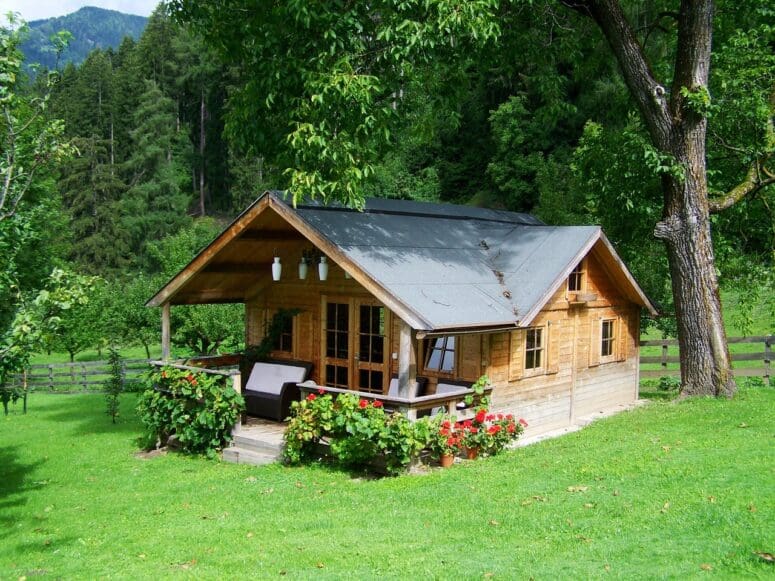Why Downsizing Your House to Save Money Is a Great Financial Choice
- Published on
-
 Julia Aldrich Contributing AuthorClose
Julia Aldrich Contributing AuthorClose Julia Aldrich Contributing Author
Julia Aldrich Contributing AuthorJulia holds a B.S. in Psychology from the University of Pittsburgh. Her writing focuses on research-based nonfiction and can be seen in The Pitt News, eCampus, and Madwire.
In the past several decades, the cost of housing has increased dramatically. We don’t expect it to slow down. Depending on its location, a house bought 20 years ago is worth exponentially more than it was in the ‘80s or ‘90s. That’s why downsizing your house to save money right now could be a great choice.
The Benefits of Downsizing Your House to Save Money: A Quick Overview
- Maintaining a larger home costs more than maintaining a smaller home
- You could make money on your home sale
- You can use that money to make smart investments in your future
People buy large houses for many reasons, but those reasons aren’t always practical. Regardless of why you bought a large home back in the day, one fact stands true now: that home is probably worth a whole lot more.
If you have a big home and you’re not using the space, now is the right time to downsize. It’s a hot market and you could fare well if you go about it correctly.
Here’s why.

The Bigger the House, the Bigger the Costs
The larger the house, the more upfront cost, but what happens after you purchase it? Owning a large home is expensive, even if you’ve paid off the mortgage.
To start, your energy bill is going to be a lot higher even if you take care to turn off the lights because about 42% of the energy used in most households is spent on heating and ventilation. If you have space in your home that isn’t being put to good use, you’re likely wasting energy and money keeping it temperature controlled.
If you’re still paying off your mortgage, then you likely have an escrow account with your lender into which you pay both property taxes and homeowner’s insurance. The amount you pay into your escrow account every year depends on the cost of the mortgage and if you have a higher mortgage, you’re going to put more money into that account.
The amount that you pay for property taxes depends on the local percent rate and your mortgage. Similarly, the cost of homeowner’s insurance premiums are calculated based on mortgage, location, and whether or not you’re in a hazard zone.
Between utilities, taxes, and insurance, you’re spending a pretty penny on top of an already costly mortgage. That’s not even covering maintenance costs, like plumbing and lawn care. If you’re not using the space in your large home, the money spent on all of these factors is just wasted.
Make Money By Downsizing Your Home
You save money on upkeep costs when you downsize but you also MAKE more money.
How? Equity.
Currently, most of the United States is in a seller’s market. Because of the competitive nature of this type of housing market, there’s a good chance that the value of your home is higher than what it was when you first bought it. By selling your property and downgrading to a smaller, less expensive home, you’re going to earn money from the equity of your current home.
Bottom line is: depending on the cost of your new mortgage, you could make a sizeable profit after all is said and done.

Use That Money to Make Smart Investments
While it’s tempting to spend the money you made through downsizing your house on a nice new boat or car, consider investing in something that’s going to benefit you and your family in the long run.
More and more Americans neglect their retirement savings accounts. Many working-age families in the United States have little to no savings in their retirement account, with the median amount sitting at around $5,000.
Guess one of the leading contributors: high debt-to-income ratio from a pricey mortgage.
By age 45, you should have at least six times your salary tucked away into a retirement account. By downsizing into a smaller, less expensive home, you could invest the money that you originally had to spend on mortgage bills, taxes, insurance, and utilities into your future by depositing it into an individual retirement account, or IRA.
If you have children, you could put the money you saved towards their education. The student debt issue isn’t going away anytime soon either. The average student in 2016 graduated with over $37,000 in loans to pay off. Downsizing won’t pay for an entire bachelor’s degree but it could chip off some of the burden.
Any money paid up front on your debt is better than taking out another loan.
Don’t have any debt and hold a handsome retirement account? If you’re savvy and have some extra time on your hands, you could put your savings towards things like mutual funds and real estate investment trusts (REITs).
Worse comes to worse, a savings account is a viable option. While most savings accounts are taxable, there’s no limit to how much money you can deposit into it and you’ll earn interest as it grows.
Depending on how much money you have on hand after the move, you could try a money market account that offers an even higher interest rate. There’s usually a minimum balance that needs to be met though, so keep that in mind.
Say you earned over $10,000 from your home’s equity which you deposit into a money market with a 1.3% APY (annual percentage yield), you’d be earning $130 a year, which isn’t bad for simply possessing a savings account.

How Do You Maximize Downsizing Savings?
Whatever you do with your money is up to you, but unless you’re smart about downsizing your home to save money, you might not even have the money to make such investments.
Selling your home isn’t just a one and done process, and you should never go about it on your own. Real estate agents exist for a reason, and homes sold with the assistance of agents sell for about $60,000 more than those sold solely by the owner.
It’s hard to navigate the housing market, spruce up your listing, and write legible closing contracts. Downsizing your house on your own can be a nightmare. As a result, only about 8% of homes sold in 2015 were FSBO’s (for sale by owner).
Are You Ready to Downsize to Save Money?
Downsizing your home can save you a good chunk of money. You can put that towards worthwhile investments, like you and your family’s future. To get the most out of this experience and avoid some of the difficulties that could hinder your goals, look for a top real estate agent on both the selling and buying end.
